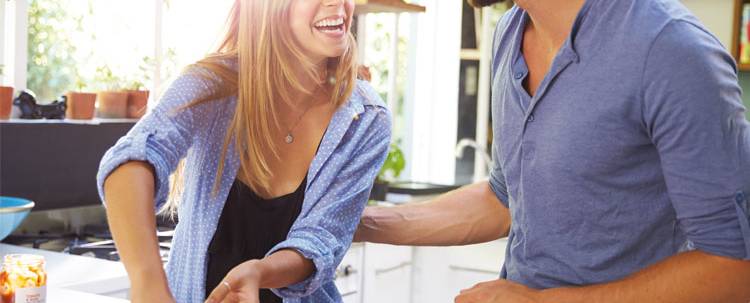5 actions at home to fight climate change
The effects of climate change are addressed in the large international summits, but some of the causes start much closer to us, even in our homes. It is one of the greatest threats to humanity, but it is not foreign to us, and is something we can intervene in on a day to day basis with small actions that can entail a big change.
IT’S ECO, IT’S LOGICAL
Share

Managing waste, using energy, utilising food, efficiency in transport and using water are five areas which can contribute to reduce our CO2 emissions, according to the conclusions of the last United Nations Climate Change Conference held in Marrakech.

WASTE
Apart from keeping the ‘3R’ rule (reduce, reuse and recycle) always in mind, there are other actions such as:
• Avoiding excessive use of plastic bags. When you want to throw them away you can recycle them in the yellow container.
• Utilise materials to the maximum before throwing them away: paper, packages, etc.
• Sort and recycle all produced waste. This includes: lightbulbs and fluorescent bulbs, glass, kitchen appliances, electronic devices, packaging, organic waste, paper and cardboard, batteries, used ink cartridges.
• If things are kept clean and tidy, you avoid them spoiling and turning into rubbish.

ENERGY
From the moment we get up to the moment we go to bed we use energy. The majority of it comes from fossil fuel (petrol, coal and gas) which produce large quantities of CO2 emissions, which seriously affect the atmosphere. With some actions, we could reduce our consumption:
• Only switch on essential lights.
• Cook with the lids on pans and utilise residual heat.
• Keep the thermostat between 19 ºC and 21 ºC in winter and between 24 ºC and 26 ºC in summer.
• Use electric appliances when they are full and with cold wash cycles.
• Use the stairs instead of the lift.
• Do not keep your mobile charging all night.

WATER
The water we use in our homes has to go through several processes (impulsion, purification, etc.) which involve polluting emissions. You can also optimise your consumption:
• Turn the tap off when brushing your teeth, and save 550,000 litres of water throughout your life.
• Install flow reducers or aerators in the toilet system. Toilets are responsible for 21% of home water consumption.
• Take showers instead of baths. You’ll consume up to 5 times less water and energy.
• Use the dishwasher when it is full. It uses 9 times less water than washing up by hand.
• Reuse rain water.

FOOD
Every time you buy something, it does not only ‘affect’ your wallet. From the manufacture of the product, its packaging, transport to the sales point and the necessary process for its elimination when we throw it away, it has an impact in the form of CO2 emissions. A thought-out, intelligent buying decision is the key to reducing its impact:
• Choose local, seasonal products.
• Consume fruit and vegetables, and where possible organic products.
• Choose products with less packaging.
• Practice proximity consumption to avoid long trips in the car to go shopping.
• Reduce food wastage: throwing food away entails an impact on the environment and a huge waste of resources such as water, agricultural surface and energy, which have been used to produce food which is finally thrown away.

TRANSPORT
Changing the way we move around, by using public transport, cycling or walking on urban journeys and car sharing or choosing vehicles which emit less CO2 in interurban travel, would help to improve climate change.
• Choose a hybrid or electric vehicle, or one with fewer CO2 emissions per km.
• Do car sharing.
• Opt for the most efficient transport means for each journey. Where possible, use public transport.
• Drive efficiently: without sharp accelerations, in low gears, keeping up to date with regular tests, putting the heating on only when necessary…







